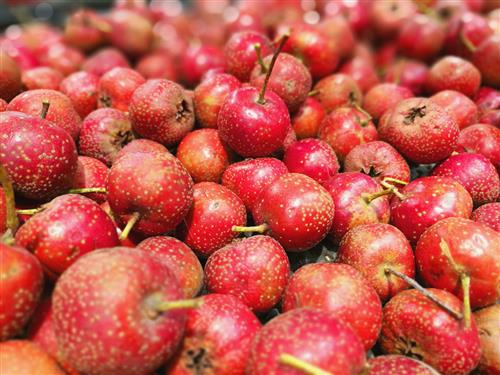What can I eat in winter? 9 kinds of food:
1, brown sugar water
The cold winter emphasizes warming, and in terms of drinks, brown sugar water is the best warming supplement. Brown sugar has the reputation of “Oriental Chocolateâ€. Its advantage lies in its “warming up, warming, and warmingâ€. It has the functions of stasis, coldness, warm stomach, spleen, pain relief, and richness. Calcium, iron and other essential minerals and trace elements. Brown sugar water must be boiled. Brown sugar boiled brown sugar water than to drink directly with hot water more easily absorb the nutrients, and more with a supplement of Qi, spleen and stomach, warm stomach effect.

2. Hawthorn
The winter season is the season when hawthorn is marketed. Hawthorn is both a food and a medicine and has the effects of appetizers, digestion, and blood circulation. Modern medical research shows that hawthorn contains organic acids such as tannic acid, malic acid, and ascorbic acid, which increase the secretion of digestive enzymes. .
The most prominent benefit of hawthorn is that it can prevent and treat cardiovascular disease, because Hawthorn contains flavonoids, which have a certain effect on preventing and treating cardiovascular diseases, lowering blood pressure and cholesterol, softening blood vessels and calming blood vessels. In winter, wolfberry soup or tea with hawthorn is the best choice for cassia seed, which can reduce blood lipids.
3, peanuts
After the late autumn, the peanuts mature, and after the fall, they eat peanuts, peanut oil, peanut butter, and peanut beverages. Peanut sweet, flat, can spleen and stomach, lungs and phlegm, Qi to stop bleeding, for spleen weight loss, eat less fatigue, dry cough, sputum, postpartum milk deficiency embolism. The fat in Li Peanut can decompose liver cholesterol into bile acid, promote excretion, and thus lower the blood cholesterol level to prevent atherosclerosis. Peanuts should not be fried and eaten because of poor digestion and absorption.
4, chestnuts
Chestnuts have the good name of “King of the Thousand Fruits†and they are still “tonics†for kidney and Qi. The main effect of chestnuts is to nourish the stomach, strengthen the spleen and strengthen the kidneys, and it is suitable for young and old. Modern medical research has found that unsaturated fatty acids and various vitamins contained in chestnuts have anti-hypertensive (cardiovascular and cardiology departments), coronary heart disease (cardiology) and arteriosclerosis (cardiothoracic surgery cardiovascular department) efficacy. Chestnut stew chicken, suitable for cold people, good Qi kidney function.
5, 枸æž
In general, the principle of health in winter should be mainly to replenishing qi and promoting yang and nourishing yin and tonifying kidneys, and wolfberry is a good choice for winter tonic.æž¸æž is an excellent tonic, contains various nutrients essential to the body, including about 20% of protein, about 10% of fat, about 40% of sugar, and about 30% of it is inorganic salt and vitamins. Liver and kidney yin loss, waist and knee pain, vision loss and diabetes (endocrinology) embolism.
6, sweet potato
Eating hot and sweet sweet potatoes in winter is the most pleasant thing. Sweet potatoes are rich in carbohydrates, dietary fiber, carotene, vitamins, and more than 10 trace elements such as potassium, magnesium, copper, selenium, and calcium. In addition, sweet potatoes are rich in potassium, which can effectively prevent hypertension (cardiovascular surgery in cardiothoracic surgery) and prevention of stroke (cerebral surgery vascular surgery neurology).
Although people are accustomed to roasted sweet potatoes, in fact, steamed sweet potatoes is a healthier choice, not only reducing the loss of nutrients, but also reducing the harmful substances generated by baking.
7, white radish
In winter, people resist the cold and often eat more meat, while meat is prone to oysters and easy to get angry. With cool radish, it can cool, detoxify, and remove fire. In China, there is a reputation for "small ginseng", and there is also the saying "winter eat radish summer eat ginger". Radishes are rich in carbohydrates and vitamins. Vitamin C is 8-10 times higher than pears. Radish does not contain oxalic acid, not only does it not bind to calcium in food, but also helps calcium absorption.
Anesthesia Medical Co., Ltd. , https://www.jssinoanesthesia.com
